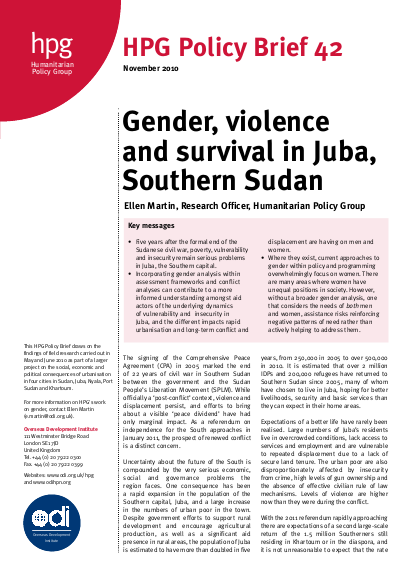
Key messages
• Five years after the formal end of the
Sudanese civil war, poverty, vulnerability
and insecurity remain serious problems
in Juba, the Southern capital.
• Incorporating gender analysis within
assessment frameworks and conflict
analyses can contribute to a more
informed understanding amongst aid
actors of the underlying dynamics
of vulnerability and insecurity in
Juba, and the different impacts rapid
urbanisation and long-term conflict and
displacement are having on men and
women.
• Where they exist, current approaches to
gender within policy and programming
overwhelmingly focus on women. There
are many areas where women have
unequal positions in society. However,
without a broader gender analysis, one
that considers the needs of both men
and women, assistance risks reinforcing
negative patterns of need rather than
actively helping to address them.